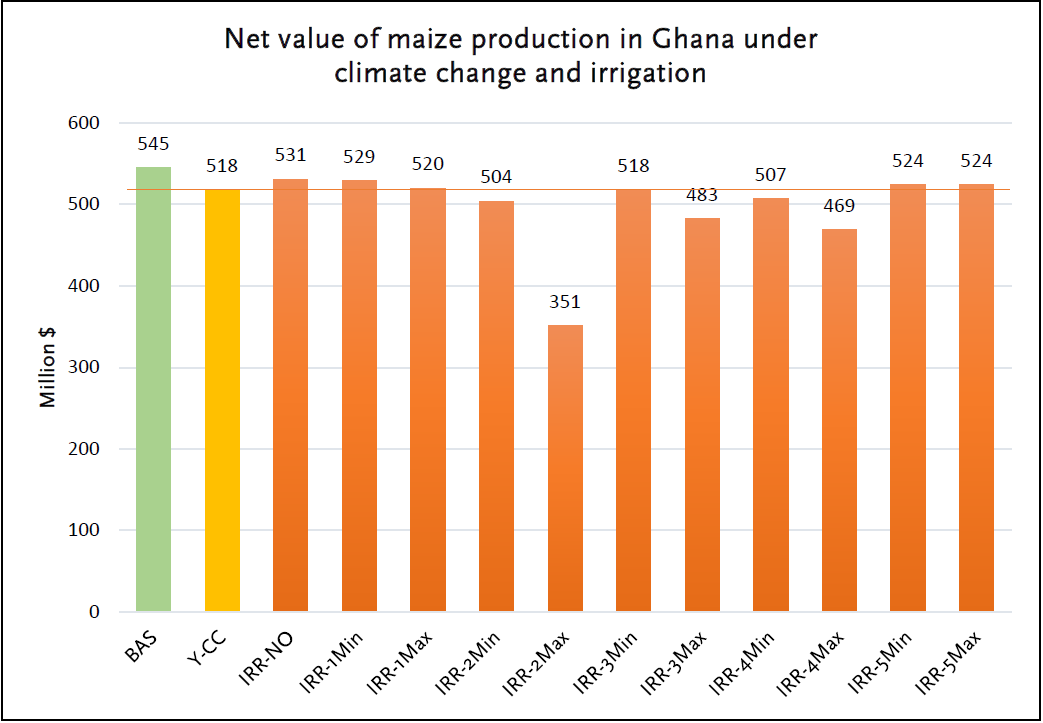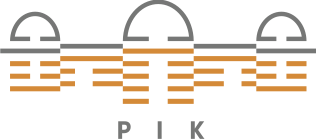Ghana: Irrigation
In areas short of precipitation, irrigation can be a key strategy to enable plant growth and increase yields. Water can be drawn from different sources, such as groundwater, surface water and in some countries even desalinated seawater, to enable a better growth of plants. Irrigation schemes at smaller scale can be initiated and implemented by farmers themselves, but for larger irrigation installations, technical agencies and extension officers play an important role.
As of yet, irrigation is not widely spread in Ghana, with only an estimated 1.6% of the area with a respective potential actually being irrigated (Mendes, Paglietti & Jackson, 2014), mostly for rice and horticulture cultivation (Namara et al., 2011). This limited uptake implies that further installation of irrigation schemes is possible and could increase Ghana’s agricultural production. However, this may incur high costs and technically challenging installation and maintenance. As a climate change adaptation strategy, the case for irrigation depends on the climate scenario, with the North of Ghana projected to see less rainfall under future climate change. However, as a measure to intensify agricultural production and enable multiple harvests, irrigation can also be considered useful today, where water is available for agricultural use.
Figure 2 shows the net value of maize production in the whole of Ghana under different irrigation scenarios, reflecting the varying costs that different irrigation techniques and installations incur. As can be seen from the comparison with the baseline scenario and the scenario under climate change, not all irrigation scenarios are able to offset the losses projected under climate change.

In sum, while irrigation has the potential to increase agricultural production in Ghana, it is also a costly strategy, often requiring institutional support for implementation and maintenance.
References
- Mendes, D.M, Paglietti, L. & Jackson, D., (2014). Ghana: Irrigation market brief. Food and Agri-culture Organization of the United Nations. Rome.
- Namara, R., Horowitz, L., Nyamadi, B. & Barry, B., (2011). Irrigation Development in Ghana: Past experiences, emerging opportunities, and future directions, International Food Policy Research Institute, GSSP Working Paper No. 27, Ghana Strategy Support Program, Accra.


